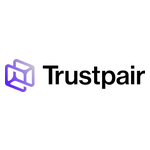Key Findings:
- Geopolitical uncertainty and other macroeconomic pressures force companies to change suppliers, creating new gateways for fraudsters
- Executives are overconfident in their organizations’ ability to fight fraud
- Nearly half of U.S. companies (47%) suffered losses exceeding $10M
- Thirty-eight percent of U.S. companies were targeted by payment fraud more than 10 times in 2024
Ninety Percent of U.S. Companies Experienced Cyber Fraud in 2024, According to New Trustpair Research
U.S. Media Contact
Jake Scearbo
Corporate Ink for Trustpair
trustpair@corporateink.com
Cyber fraud (which includes activity such as hacking, deepfakes, voice cloning and highly sophisticated phishing schemes) rose by 14% year over year, according to new data released today by Trustpair. The proprietary research, which is based on a survey of 200 senior finance, treasury, and accounts payable executives, reveals that most U.S. companies (90%) were targeted by cyber fraud in the past year, compared to 79% of companies in 2023. The surge in fraud is largely driven by fraudsters’ rapid adoption of AI. In 2024, the use of generative AI tactics such as deepfakes and deepaudio increased by 118%.
Executives cited cybersecurity as the business risk they are most concerned about for 2025 and the biggest factor that will amplify payment fraud this year. Despite the growth and success of cyber fraud methods, most executives report confidence in their (90%) and their team’s (89%) ability to spot a deepfake, business email compromise (BEC) scam, or other advanced cyber fraud attack. Only 6% claim they can’t keep up with the growing sophistication of fraud attacks.
“Our research shows that cyber fraud is an inescapable reality. While many executives express confidence in their organizations’ ability to identify sophisticated fraudsters, nearly the same percentage said their organizations experienced successful attacks, indicating the confidence is misplaced. The fraud landscape is constantly shifting. Macroeconomic factors such as economic volatility (47%) and geopolitical uncertainty (31%) are expected to add to the pressure in 2025 and create conditions that increase organizations’ vulnerability to fraud. Companies need to stay vigilant and can’t afford to be complacent with their defenses,” said Baptiste Collot, Co-Founder and CEO of Trustpair.
Trustpair’s report - Fraud in the Cyber Era: 2025 Fraud Trends and Insights - unveils the biggest fraud risks, challenges, and opportunities facing the enterprise. Key takeaways include:
-
Fraudsters are rapidly shifting their approaches. BEC and imposter email scams (63%) are now the top approach fraudsters are using against organizations, up 103% YoY. This is a considerable shift from 2023 when text messages were the most commonly used approach (50%).
-
The cost of payment fraud is growing. Nearly 60% of companies said the financial impact of payment fraud they experienced in 2024 was over $5M compared to just a quarter who said this the year prior, which is a 136% increase. Twenty percent said the impact was above $25M.
-
The reputational impact of fraud remains a major concern. Outside of financial losses, the reputational impact with customers (53%), investors (49%), and vendors and suppliers (48%) is what keeps most executives up at night.
-
Vendor fraud has spiked YoY. Sixty-nine percent of companies say they were targeted by this type of fraud in 2024, up from 47% who said this a year ago. Vendor fraud and wire transfer fraud (63%) are the top two fraud types companies were targeted by - and the two types of fraud companies say they are least prepared to deal with.
- U.S. enterprises face a glaring ‘fraud ownership’ perception problem. Only 9% of executives said fraud prevention should be the responsibility of multiple departments. Less than half say they have segregation of duties in place across teams involved in payments (45%) or that they collaborate across procurement, AP, finance, treasury, and IT (47%).
Companies Aren’t Ready for a Fraud Surge
Payment fraud is set to increase in 2025, and most companies aren’t prepared. Nearly 70% still use manual methods, such as human callbacks or emails, to handle bank account validations, which risks payments being sent to the wrong party. Only 31% use an automated account validation tool and just 8% check supplier credentials across all stages of the procurement process.
Almost half (43%) of companies have invested in fraud awareness training over the past 12 months, which is an important step, but training and policies only go so far. In fact, companies said one of their biggest challenges in fraud prevention is that employees don’t always follow fraud prevention policies (39%).
“Fraud is now a core business risk and there’s no room for errors or loopholes. Trustpair’s study shows that manual processes and controls are still companies’ first line of defense. These normal routines don’t work against such convincing schemes and savvy fraudsters. Automation is our biggest ally. It’s always there, checking bank accounts in the background. If a policy isn’t followed or a bad actor infiltrates the organization, there’s a backstop to ensure fraudsters don’t succeed,” said Treasury expert Lee-Ann Perkins.
Download the full report to learn more about the state of fraud in the U.S.
About Trustpair
Trustpair’s fraud protection makes global companies payment fraud-proof by automating bank account ownership globally. The enterprise-grade platform provides global coverage and native integration with major procurement and finance systems. Trustpair protects leading companies worldwide, including Danone, Apollo, and HPE. The company’s global presence includes offices in New York City, Paris, London, and Milan, with 100+ employees dedicated to setting the future of payment security & fraud prevention. To learn more, visit www.trustpair.com.
View source version on businesswire.com: https://www.businesswire.com/news/home/20250204557247/en/










